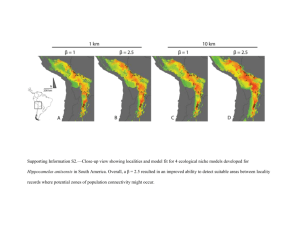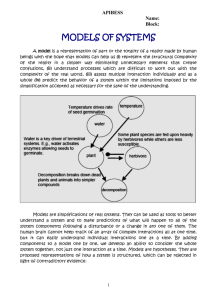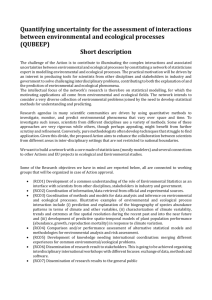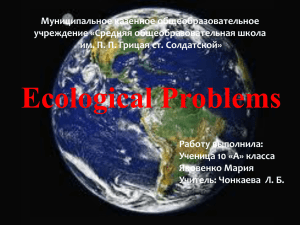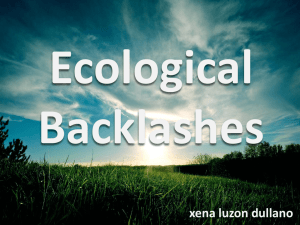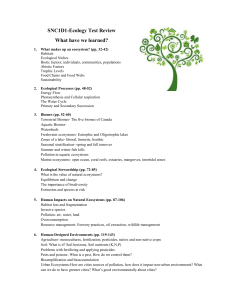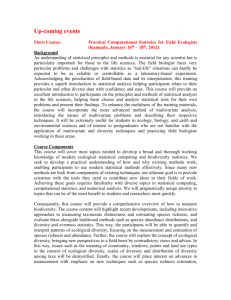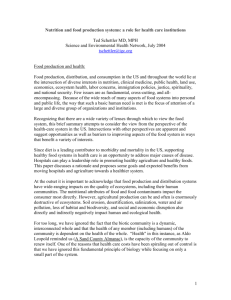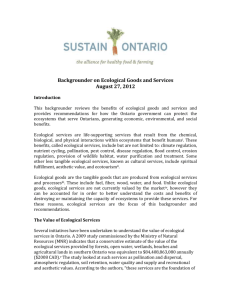Lesson 07a Land Use Planning LP
advertisement
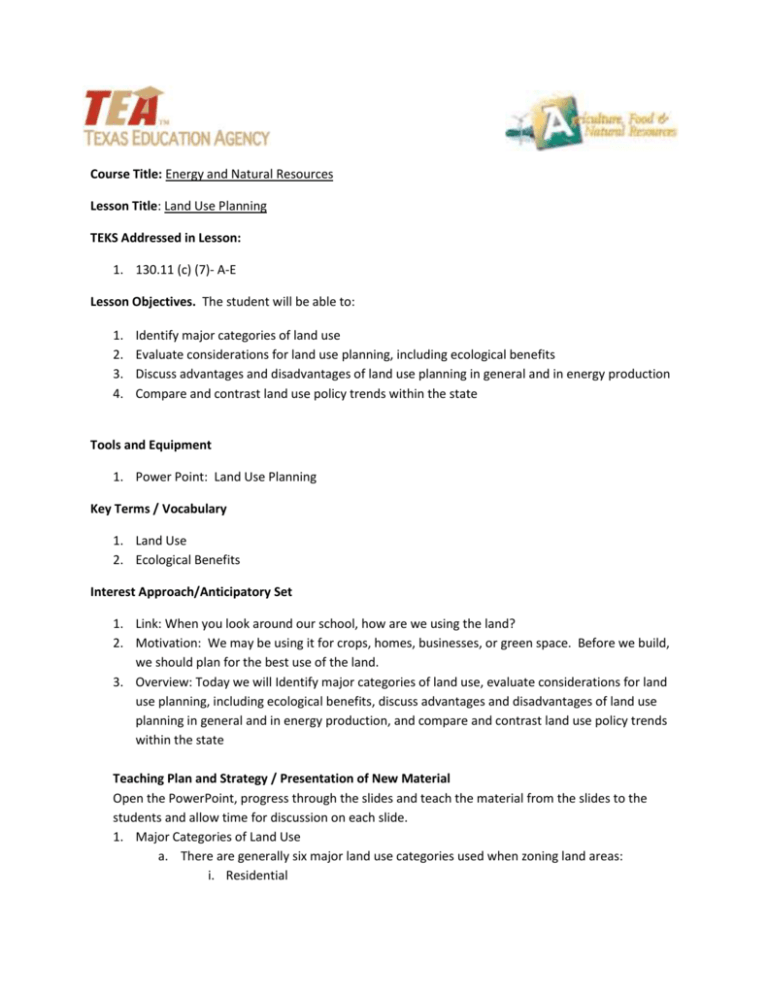
Course Title: Energy and Natural Resources Lesson Title: Land Use Planning TEKS Addressed in Lesson: 1. 130.11 (c) (7)- A-E Lesson Objectives. The student will be able to: 1. 2. 3. 4. Identify major categories of land use Evaluate considerations for land use planning, including ecological benefits Discuss advantages and disadvantages of land use planning in general and in energy production Compare and contrast land use policy trends within the state Tools and Equipment 1. Power Point: Land Use Planning Key Terms / Vocabulary 1. Land Use 2. Ecological Benefits Interest Approach/Anticipatory Set 1. Link: When you look around our school, how are we using the land? 2. Motivation: We may be using it for crops, homes, businesses, or green space. Before we build, we should plan for the best use of the land. 3. Overview: Today we will Identify major categories of land use, evaluate considerations for land use planning, including ecological benefits, discuss advantages and disadvantages of land use planning in general and in energy production, and compare and contrast land use policy trends within the state Teaching Plan and Strategy / Presentation of New Material Open the PowerPoint, progress through the slides and teach the material from the slides to the students and allow time for discussion on each slide. 1. Major Categories of Land Use a. There are generally six major land use categories used when zoning land areas: i. Residential 2. 3. 4. 5. 6. 7. ii. Agricultural iii. Commercial iv. Industrial v. Institutional vi. Recreational USDA Land Use Categories a. Cropland b. Rangeland c. Forest Land d. Other Rural Land e. Developed Land f. Water Areas Think about where you live. What would be the impacts on your environment (water, land, animals) if the following were built? a. Residential-building homes b. Agricultural-crops, rangeland c. Commercial-businesses d. Industrial-energy plants e. Institutional-school or hospital f. Recreational-parks or hunting areas Ecological Benefits a. When planning for land use, we should consider the Ecological Benefits. b. Ecological benefits occur when the environment is improved. c. When you plan for each of the following, how is our environment impacted positively or negatively? i. Residential-building homes ii. Agricultural-crops, rangeland iii. Commercial-businesses iv. Industrial-energy plants v. Institutional-school or hospital vi. Recreational-parks or hunting areas Poor Planning can result in what some would call a Concrete Jungle. A Master Planned Community is one where every aspect is planned before building occurs. Land Use Planning and Energy Production a. Decisions affecting land use directly affect energy use and the consequent production of greenhouse gases, primarily because of the strong relationship between where we live and work and our transportation needs. b. The body of research on the impact of land use on energy and climate is receiving significantly more attention with the growing interest in climate change. c. This impact policy in states—laws are passed to ensure that we consider opportunities and barriers to integrated energy and land use planning. Activity/Application/ Student Engagement /Laboratory 1. Advantages and disadvantages of land use planning a. Brainstorm the advantages of land use planning b. Now consider the disadvantages to NOT planning 2. Plan your own community a. If you were given a large, open area of land near where you live, what would you plan? b. Be sure to plan for all the categories we discussed keeping in mind the ecological benefits. Extension Activity Examine master planned communities near you. What are the pros and cons associated with the environment and energy? Discuss the impact urban development has on agricultural production and our natural resources. Evaluation / Summary 1. Pick individuals or ask the entire class these questions Summary: Today we a. Identify major categories of land use b. Evaluate considerations for land use planning, including ecological benefits c. Discuss advantages and disadvantages of land use planning in general and in energy production d. Compare and contrast land use policy trends within the state References/Additional Materials / Extended Learning Opportunities/ Enrichment 1. Major categories of land use: http://planning.lacounty.gov/luz 2. USDA Land Use Categories: http://www.nrcs.usda.gov/wps/portal/nrcs/detail/national/technical/?cid=stelprdb1083122 3. California Energy Commission: http://www.energy.ca.gov/landuse College & Career Readiness Standards: 1. Social Studies I. C. 3 2. Social Studies I. E. 1, 4 3. Social Studies IV. A. 1, 3 Developed by the Department of Agricultural Leadership, Education & Communications, Texas A&M University for the Texas Education Agency, Educational Excellence Project for AFNR ©Texas Education Agency, 2014



